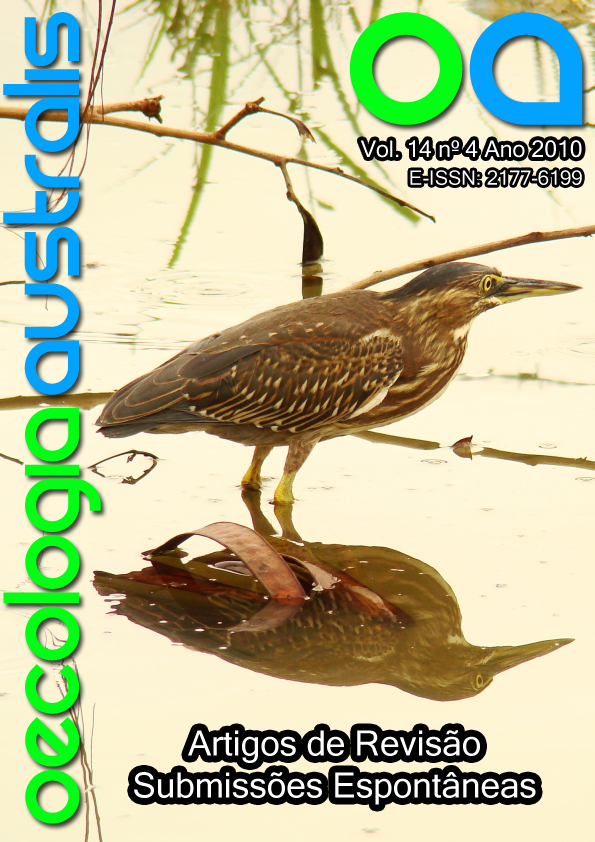DECOMPOSIÇÃO DE MATÉRIA ORGÂNICA ALÓCTONE E AUTÓCTONE EM ECOSSISTEMAS AQUÁTICOS
Keywords:
decomposição, matéria orgânica alóctone, matéria orgânica autóctone, coeficientes de decaimentoAbstract
DECOMPOSITION OF ALLOCHTHONOUS AND AUTOCHTHONOUS ORGANIC MATTER IN AQUATIC ECOSYSTEMS. There are two sources of detritus for aquatic ecosystems: allochthonous,composed mainly by leaves from the riparian vegetation, and autochthonous, with emphasis on the aquatic
macrophytes. This article presents a review of the decomposition process, the factors controlling it, and the
biological agents acting at each stage of the process: (i) leaching, (ii) conditioning and (iii) fragmentation. A
way to summarize the decomposition process allowing comparison of data is to calculate the decay coefficient.
In compilation and classification of numerous decay coefficients from leaves of riparian vegetation and aquatic
macrophytes obtained by several authors in studies of decomposition in aquatic ecosystems, we observed that:
(i) the decomposition rate of autochthonous materials was higher than that of allochthonous material (t 1/2 = 56
and 35 days, respectively), despite the decay of both types of material has been classified as fast, (ii) the decay
rate was higher for leaves decomposing in Tropical than in Temperate climate, with half-life respectively equal
to 25 and 44 days, (iii) the floating macrophytes showed the lowest decomposition rates (slow), followed by
emergent (middle) and submerged (fast) species, with half-life times, respectively, equal to 168 112 and 33
days.
Keywords: Decomposition; allochthonous organic matter; autochthonous organic matter; decay coefficient.
Downloads
Download data is not yet available.
Downloads
Additional Files
Published
2010-12-31
Issue
Section
Articles


